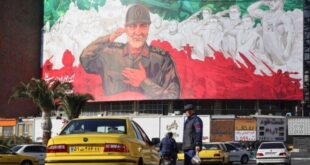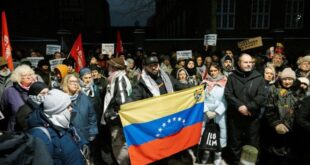Eng. Saleem Al Batayneh
Nizar Qabbani once lamented, “I am tired of my Arabism.” He questioned whether Arabism was a curse or punishment—a sentiment that feels painfully relevant today. Decades later, many Arabs are asking similar questions about the meaning and relevance of their identity. What does it mean to be proud of being Arab today? Looking around, it’s hard to find answers that inspire confidence.
For many, Arab identity feels empty and frustrating. Internally and externally, Arabs are often seen as a people burdened by disunity, lacking innovation, and, in many cases, succumbing to corrupt governance. Modern Arab societies are increasingly consumers rather than producers, and even our cultural symbols—the prayer rugs, Ramadan lanterns, and more—are often imported rather than created within our borders. This dependency speaks volumes about the state of self-reliance and innovation in the region.
We speak constantly of unity, yet we remain deeply divided. While Europe, a continent of diverse languages and cultures, has formed strong regional alliances, Arab nations remain fragmented. Today, Arab identity often feels diluted, weighed down by the many layers of history and external control that have left lasting scars. Many have argued that the political legacy imposed by colonialism divided the region irreparably, creating artificial boundaries and weak governments that struggle to build cohesive societies.
In many cases, people within the Arab world are now actively distancing themselves from Arab identity. Across the region, communities are reclaiming distinct cultural identities as a means of preserving something meaningful. In Egypt, Copts are reasserting their unique identity; in Iraq, Chaldeans are harking back to Syriac heritage; and the Amazigh people in North Africa are reviving their indigenous languages and customs, casting aside the notion of an all-encompassing Arab identity. These efforts highlight a growing belief that Arabism has not served as a unifying force but rather as a superficial label that has obscured and sometimes even suppressed more authentic identities.
Internationally, Arab countries have become pawns in global power struggles rather than active participants. Western influence and regional conflicts have deepened the feeling of being subject to outside powers. Despite sharing one language, the Arab world has not forged a collective front that can assert its interests on the global stage, leaving a power vacuum filled by foreign actors.
So, what’s left of Arab identity? It seems, tragically, that it is no longer something Arabs themselves wish to uphold. The disconnect between the grand ideals of Arab heritage and today’s harsh realities has left people questioning the very concept of a unified Arab identity. In a world that increasingly favors those who adapt and innovate, Arab societies must confront the painful reality of their stagnation.
As we reflect on what it means to be Arab, perhaps it is time to reconsider how we can redefine this identity. Rather than focusing on what divides us or clinging to fractured legacies, there is a need to imagine a future that brings forth genuine progress. Arabs can still find pride in their heritage, but only by confronting the present with honesty and striving to rebuild a sense of unity based on shared values and ambitions—not just shared history.
Eng. Al Batayneh was a member of the Jordanian Parliament.
 Geostrategic Media Political Commentary, Analysis, Security, Defense
Geostrategic Media Political Commentary, Analysis, Security, Defense





